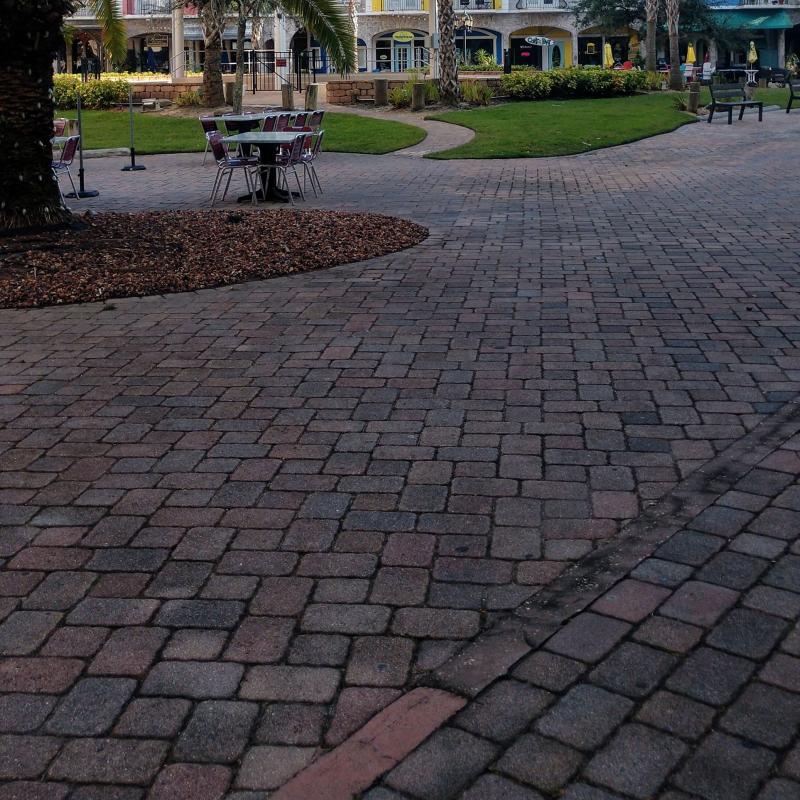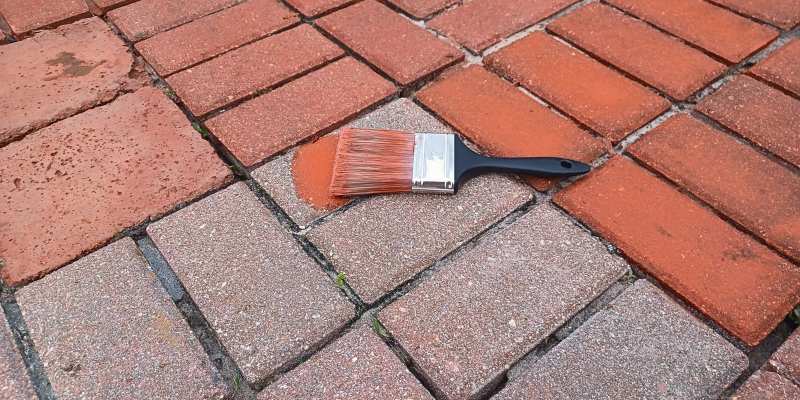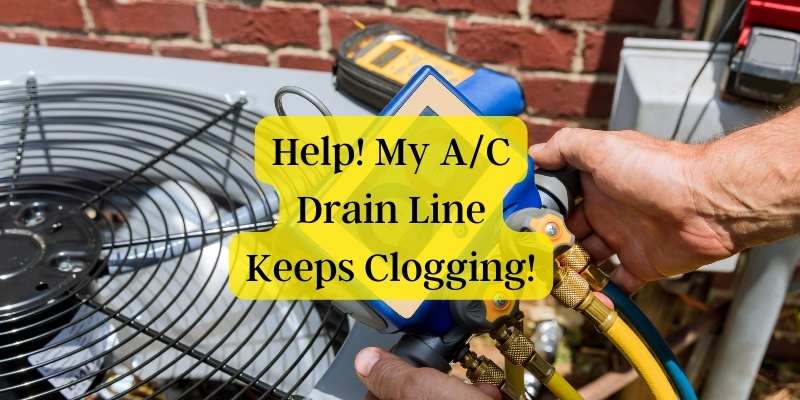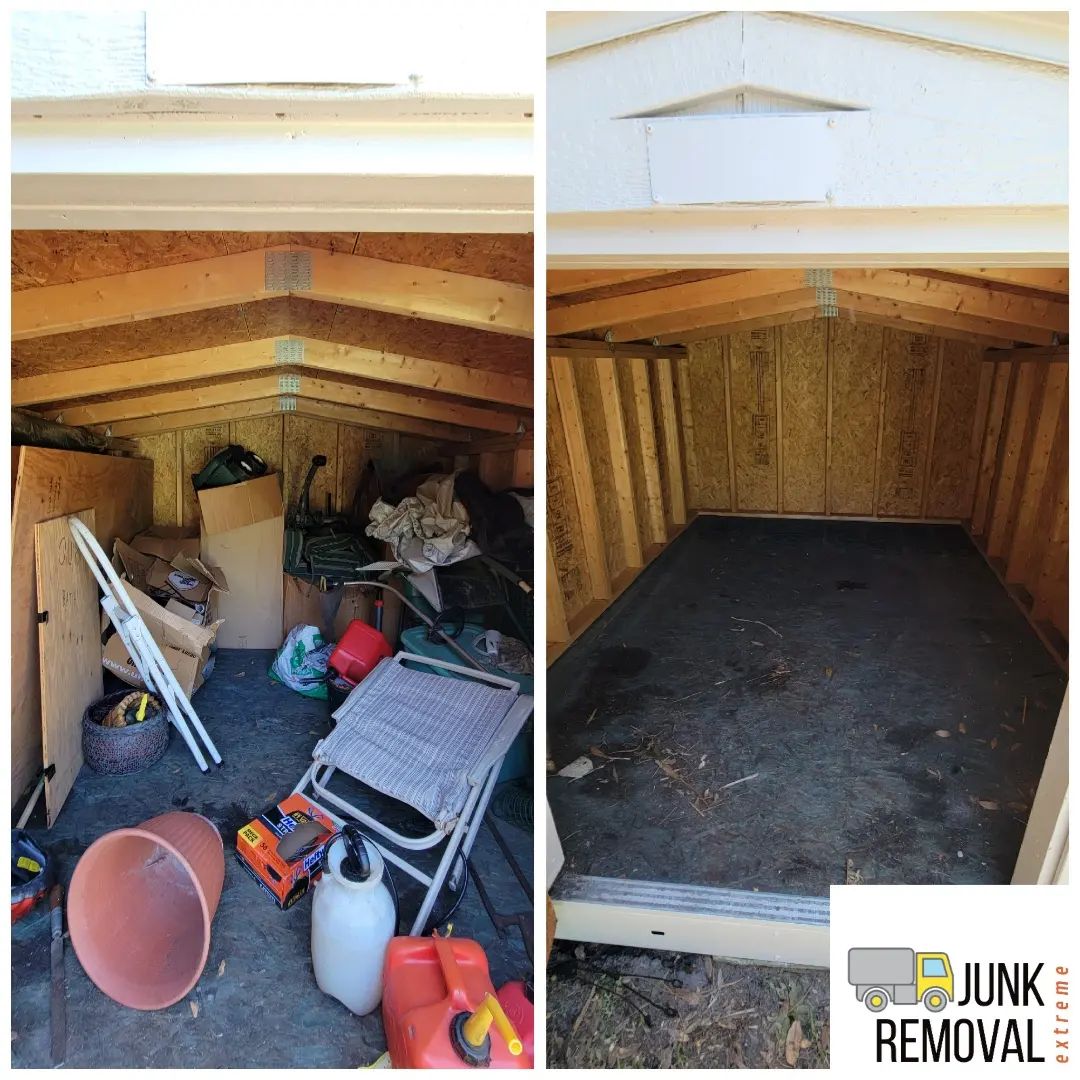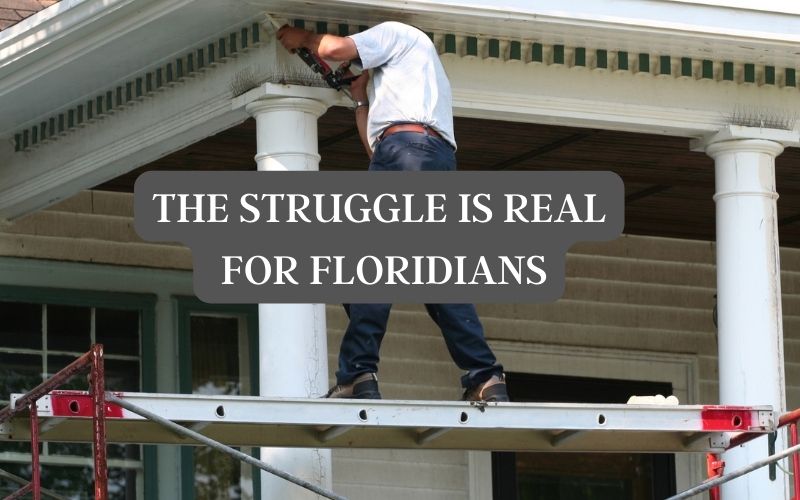The Threat of Mold and Mildew:
Structural Damage: Mold and mildew thrive in damp environments, and Florida's humid climate creates the perfect breeding ground for them. When these organisms take root in the pores of your concrete driveway, they begin to grow and spread, causing gradual deterioration. As they penetrate deeper into the concrete, they weaken the structure, leading to cracks, crumbling, and even sinking in severe cases.
Slip Hazards: The presence of mold and mildew on your driveway not only compromises its structural integrity but also poses a safety risk. Mold and mildew create a slimy film on the surface when wet, making it extremely slippery and increasing the chances of accidents, especially after rain or during the humid summer months.
The Impact of Dirt and Debris:
Stain Formation: Over time, dirt, dust, and debris accumulate on your concrete driveway, leaving behind unsightly stains. These stains can range from light discoloration to dark, stubborn marks that are difficult to remove. They not only mar the appearance of your property but also give an impression of neglect and poor maintenance.
Fading and Erosion: Fine particles of dirt and abrasive debris, such as sand and gravel, can act as abrasives on the surface of your concrete driveway. As vehicles drive over the concrete, these particles grind against the surface, leading to fading, erosion, and loss of the protective sealant. This exposes the concrete to further damage from UV rays, moisture, and chemicals.
Prevention and Maintenance:
Regular Cleaning: Implementing a routine cleaning schedule is crucial to prevent the buildup of mold, mildew, and dirt on your driveway. Use a garden hose with a high-pressure nozzle in between professional cleanings to remove surface contaminants. Additionally, scrubbing with a mild detergent and a stiff brush can help eliminate stubborn stains like oil and well water stains.
Sealant Application: Applying a high-quality concrete sealant serves as a protective barrier against mold, mildew, dirt, and other environmental factors. It prevents moisture infiltration and minimizes the chances of structural damage. Consult a professional, licensed contractor in Palm Coast or Flagler County for the appropriate sealant and its proper application.
Regular Inspections: Conduct regular visual inspections of your concrete driveway to identify any signs of mold, mildew, cracks, or discoloration. Catching these issues early allows for timely intervention and repair, saving you from costly restoration work in the future.
Homeowner Association Compliance: Living in a Palm Coast neighborhood with an H.O.A. have certain expectations of keeping the appearance of your home and it's property. You can avoid letters, or even fines imposed by keeping a regular routine of the exterior of your property.
Maintaining a clean and well-preserved concrete driveway is essential for homeowners and commercial property owners in Palm Coast and Flagler County, Florida. Mold, mildew, and dirt may seem harmless, but they can gradually erode your driveway's structural integrity, compromise safety, and ruin its appearance. By adopting preventive measures such as regular cleaning, sealant application, and inspections, you can protect your investment and ensure the longevity of your concrete surfaces. Don't let these hidden dangers take a toll on your property; take proactive steps to keep your driveway in pristine condition.

